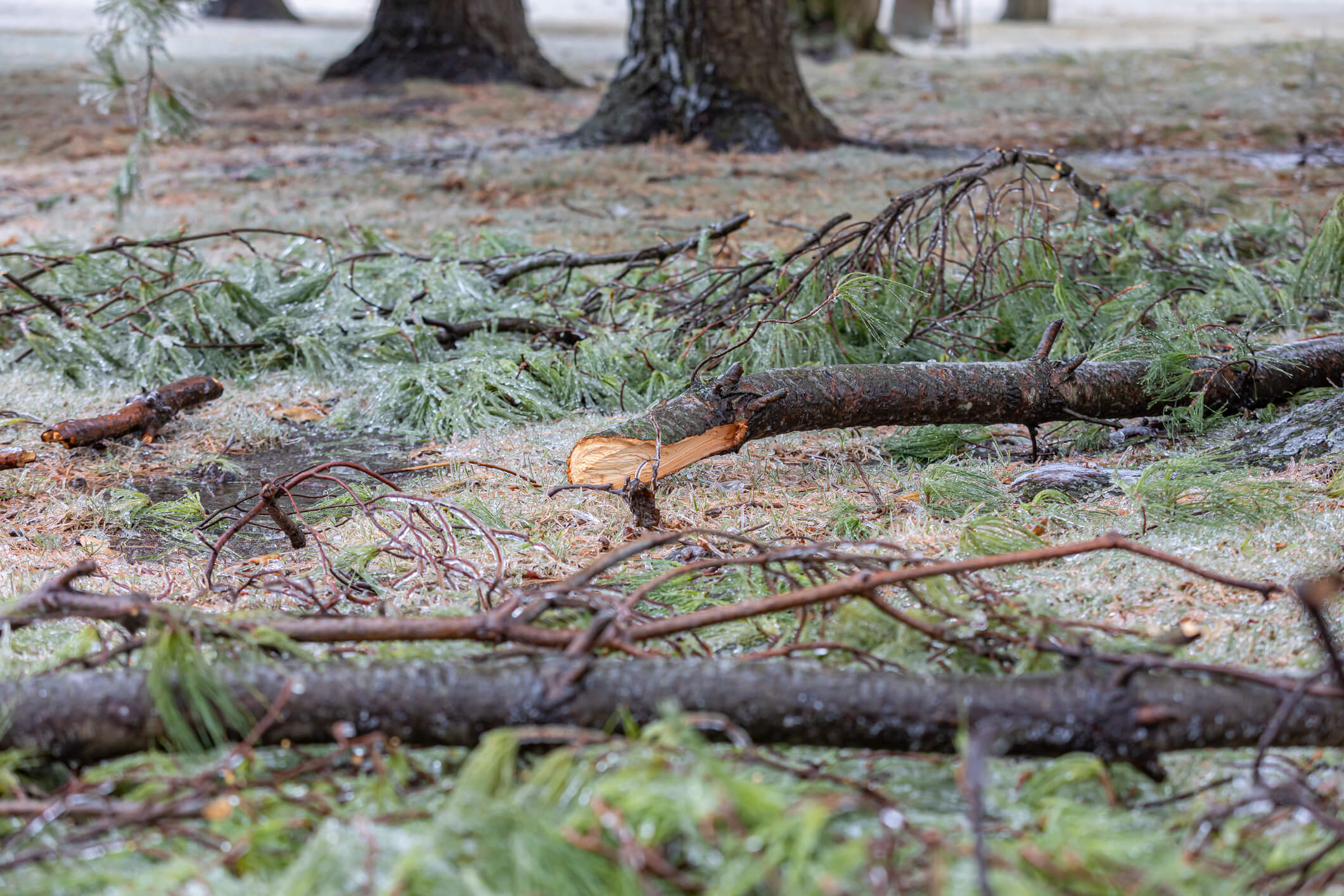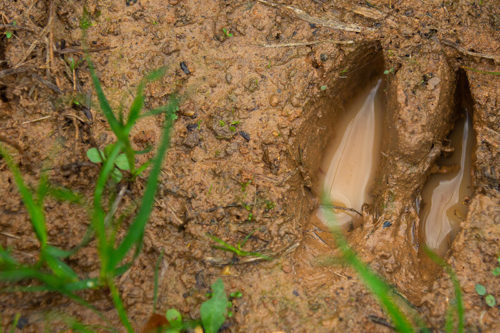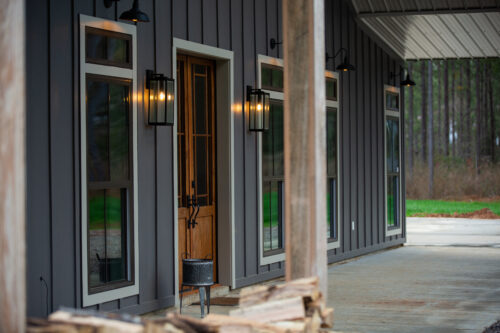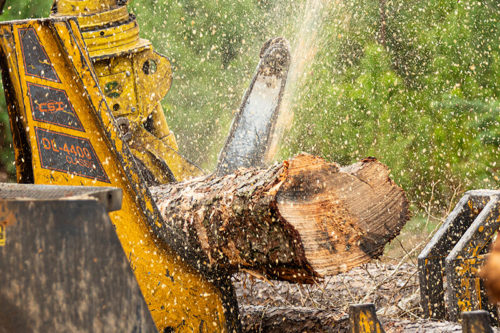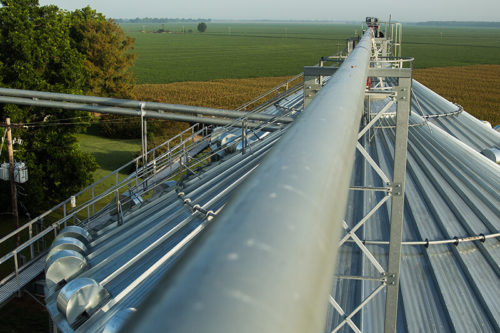Ice Storm Prep for Rural Properties
If you live in a rural area of Louisiana or Mississippi, severe weather can be devastating. And even though we live in a relatively warm climate, we aren’t impervious to severe cold and ice storms. The North American winter storm that hit us in February 2021 caused significant devastation across the country.
Locally, the storm caused thousands of traffic accidents and was officially declared a disaster by the federal government in both Louisiana and Mississippi.
An ice storm of that magnitude can possibly happen again, and preparing may help you mitigate the effects of the storm. Below are some tips, products and information you can use to stay safe and warm this year and for years to come.
Tricks of the North
Southerners rarely come into contact with the everyday tools that people in colder climates use when dealing with ice and snow. Though these may be used sparingly, you won’t regret having some of them on hand.
Rock Salt
Rock salt can be used on sidewalks, stairs, patios and driveways to prevent slipping on ice. Don’t handle the salt with your bare hands, and be judicious about the amount of salt you use. Carefully wash your pets’ paws if they step in salt, as it will irritate their paw pads. If you properly store rock salt in an airtight container, you can keep it indefinitely.
Tire Traction
Many Southerners have heard the term “tire chains,” but do they know what that means? We all know how well sand melts ice, so try as they might, roads will likely be impassable until it melts. If you have to leave your home and are worried about getting stuck, there are some tire gadgets that can help get you out of a rough spot. Search for tire traction chains, tire traction mats and trac-grabbers.
Ice Accessories
Here are some nice-to-haves that you may enjoy during an ice storm:
- Windshield scraper for removing ice on your car windows
- Over-the-shoe ice cleats to reduce slip and falls
- Touch screen gloves to keep your hands warm while using your mobile device
Propane
Chances are if you live in a rural area, you use propane for cooking and heating your home. The good news is that your home will likely stay warm. The bad news is that you’ll be using quite a bit more propane to heat your home and may risk running low or even running out. Propane tanker trucks could be running behind or unable to travel at all if the roads are too inaccessible.
During the winter months, try to make sure that your tank is regularly topped off by enrolling in a regular fill schedule with your propane company.
Frozen Pipes
Frozen pipes were a major issue during last year’s storm. There were boil water notices, burst pipes and busted mains.
First, prepare to be without water by storing some at your home. The same general FEMA-recommended rule applies to winter storms as it does to hurricanes: plan for one gallon per person, per day. If you are able, try to keep enough for two weeks.
Second, try to keep your pipes from freezing. If you have pipes that are exposed to cold air, you can purchase wrap or tube insulation from the hardware store. You can even wrap pipes and spigots with old towels and duct tape if you’re in a pinch. If you notice a frozen pipe, you can use an electric hairdryer to thaw it. However, don’t leave the dryer unattended.
Third, you may have read that you need to keep your faucet dripping in order to keep the pipes flowing. That’s one way, but that method helps contribute to low water pressure across the whole system.
Treeline Maintenance
Your risk of knocking down power lines increases in rural areas, and it may make roads impassable. Sleet-covered trees will snap or blow over during a winter storm. If a fallen tree has caused an impasse on your property or on a public road, be 100 percent sure that there is no power line under the tree before you attempt to clear it.
Generator Safety
Hundreds of thousands of people lost power last year during the winter storm, and tragically, lives were lost due to house fires and carbon monoxide poisoning.
If you are going to use a generator to power your home during a blackout, please consider the following warnings very carefully:
- Only heat your home with something designed to heat a home. This includes your fireplace, central heat and safely operated and monitored space heaters. Do not use an oven, stove or other burning device to create heat for your home.
- Never run your car in a closed garage.
- Do not take your generator inside, ever. Keep it as far away from the home as you can, as they create quite a bit of carbon monoxide.
Report Outages and Down Power Lines
If your power goes out, there’s no guarantee that your utility company will know about the issue. Let them know by reporting the outage on their app, website or by phone.
Many electricity providers in Louisiana and Mississippi now offer mobile apps, and if you allow notifications, the app can send you information on outages and restorations. However, even if you download your utility’s app, consider keeping both their number and your account number written down on paper just in case.
The chart below contains numbers to report outages and down power lines to electrical providers in the areas that Southern AgCredit serves.
Louisiana Electricity Providers
For urgent help with down power lines, you may also call 911.
| Electricity Provider | Report Outages & Down Power Lines | Outage Map |
|---|---|---|
| Claiborne Electric Co-op | (800) 900-9406 | Outage Map |
| Cleo Power | (800) 622-6537 | Outage Map |
| Entergy Louisiana | (800) 968-8243 | Outage Map |
| City of Minden Utilities | (318) 377-2144 | n/a |
| Panola-Harrison Electric Co-operative | (800) 972-1093 | Outages text message alerts |
| City of Ruston Utilities | (318) 255-1316 | n/a |
| SLEMCO | (888) 275-3626 | Outage Map |
| SWEPCO | (888) 218-3919 | Outage Map |
Mississippi Electricity Providers
For urgent help with down power lines, you may also call 911.
| Electricity Provider | Report Outages & Down Power Lines | Outage Map |
|---|---|---|
| Canton Municipal Utilities | (601) 859-2474 | n/a |
| Central Electric Power Association | (601) 267-3043 | Outage Map |
| Coast Electric | (877) 769-2372 | Outage Map |
| Collins, MS Electric Utility | (601) 765-4491 | n/a |
| Delta Electric Power Association | (662) 453-6352 | n/a |
| Dixie Electric | Smarthub app (601) 425-2535 | Outage Map |
| East Mississippi Electric Power | (601) 581-8600 | Outage Map |
| Entergy Mississippi | (800) 968-8243 | Outage Map |
| Greenwood Utilities Commission | (662) 453-7553 | n/a |
| Magnolia Electric Power Association | (601) 684-4011 | Outage Map |
| Mississippi Power | (800) 487-3275 | Outage Map |
| Natchez Trace Electric Power | (662) 456-3037 After Hours: (662) 456-6185 (662) 456-6186 | n/a |
| Pearl River Valley EPA | 855-277-8372 | n/a |
| Philadelphia, MS Utilities | (601) 656-1121 | n/a |
| Singing River Electric Cooperative | Smarthub app Lucedale: (601) 947-4211 Gautier: (228) 497-1313 | Outage Map |
| Southern Pine Electric | (800) 231-5240 | Outage Map |
| Southwest Mississippi Electric Power Association | Smarthub app (800) 287-8564 | Outage Map |
| Tallahatchie Valley Electric | (662) 563-4742 | Outage Map |
| Twin County Electric Power | (662) 827-2262 After hours: (866) 897-7250 | n/a |
| Public Service Commission of Yazoo City | (662) 746-3741 | n/a |
| Yazoo Valley Electric Power Association | (662) 746-4251 (888) 484-4277 | n/a |
Stay Put and Enjoy the Quiet
If we have another ice storm, and you’re properly prepared, we recommend staying put and enjoying the quiet. Mother Nature will melt the roads eventually.
Southern AgCredit works to help our customer-owners realize their dreams of living in the country. For more information on financing land for yourself, contact an office near you.

